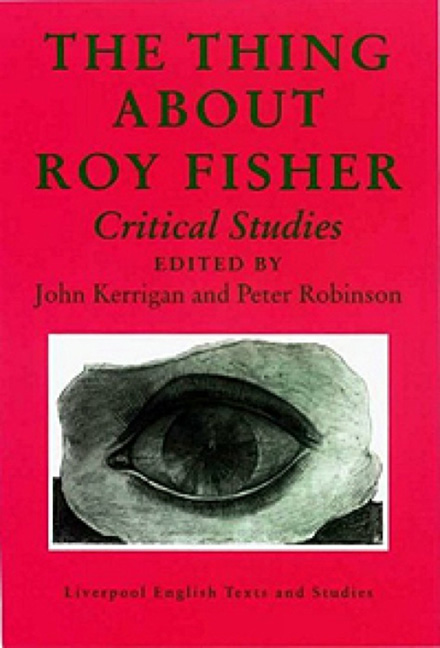Book contents
- Frontmatter
- Contents
- Notes on Contributors
- Acknowledgements
- Abbreviations
- Introduction
- 1 Roy Fisher on Location
- 2 ‘Menacing Works in my Isolation’: Early Pieces
- 3 TheWork of a Left-Handed Man
- 4 Osmotic Investigations and Mutant Poems: An Americanist Poetic
- 5 ‘Making Forms with Remarks’: The Prose
- 6 Cutting-Edge Poetics: Roy Fisher's ‘Language Book’
- 7 A Burning Monochrome: Fisher's Block
- 8 ‘The Secret Laugh of the World’
- 9 ‘Exhibiting Unpreparedness’: Self, World, and Poetry
- 10 ‘Coming into their Own’: Roy Fisher and John Cowper Powys
- 11 A Furnace and the Life of the Dead
- 12 Last Things
- Roy Fisher: A Bibliography
- Indexes
3 - TheWork of a Left-Handed Man
- Frontmatter
- Contents
- Notes on Contributors
- Acknowledgements
- Abbreviations
- Introduction
- 1 Roy Fisher on Location
- 2 ‘Menacing Works in my Isolation’: Early Pieces
- 3 TheWork of a Left-Handed Man
- 4 Osmotic Investigations and Mutant Poems: An Americanist Poetic
- 5 ‘Making Forms with Remarks’: The Prose
- 6 Cutting-Edge Poetics: Roy Fisher's ‘Language Book’
- 7 A Burning Monochrome: Fisher's Block
- 8 ‘The Secret Laugh of the World’
- 9 ‘Exhibiting Unpreparedness’: Self, World, and Poetry
- 10 ‘Coming into their Own’: Roy Fisher and John Cowper Powys
- 11 A Furnace and the Life of the Dead
- 12 Last Things
- Roy Fisher: A Bibliography
- Indexes
Summary
When jazz musicians tune up they commonly ask for an A. I have a pianist friend who, on any occasion he's confronted by this question, balances a pair of lens-less horn-rimmed spectacles on the end of his nose, stares severely over them, and in a Herr Doktorish way barks ‘Any particular key?’ The friend isn't Roy Fisher though I imagine he will be familiar with the joke. For all I know, he may have started it. Jazz jokes tend to become shared property, as endlessly and unquestioningly repeated as the two-bar tag on ‘Buddy Bolden's Blues’ or the ordering of themes in ‘Panama Rag’ (or any other rag, come to that). I suspect the underlying reason for this is that once you know the jokes and the routines—the rituals, even—you're considered part of the brother-and-sisterhood. This isn't to be compared to the masonic handshake, but only because jazzmen and women see themselves as either coming from or belonging to the wrong side of the tracks.
I am of course talking about jazz in the UK, and the kind of jazz I have in mind is usually dubbed ‘New Orleans to mainstream’. Men (mostly) andwomen (a few)who began to play thismusic during and after the Second World War came from mostly provincial back-grounds and, with a handful of exceptions, were of working-class origin. Jazz became their music because, quite apart from its intrinsic merits, it exuded an enviable air of freedom, gaiety, of being un-English, unstuffy, above all, I suspect, unshackled from the snobberies of class. And in case this should seem to be a grotesque sentimentalization, we need to recall that post-war Britain was, not surprisingly, a fairly depressing place in which to live, and that by contrast the USA, at all events as it appeared in versions supplied by technicolour Hollywood and other forms of popular culture, looked vivid with pleasures of the flesh. Jazz evoked such pleasures and in the UK it was therefore musically and, by implication, sexually, socially and politically transgressive. Jazz was the music of opposition. Jimmy Porter plays the trumpet.
Such opposition can be traced back to the 1920s, when jazz was associated with ‘loose’ living, with decadent bright young things, with drugs—especially cocaine, and with marches of the unemployed.
- Type
- Chapter
- Information
- The Thing About Roy FisherCritical Studies, pp. 86 - 105Publisher: Liverpool University PressPrint publication year: 2000



